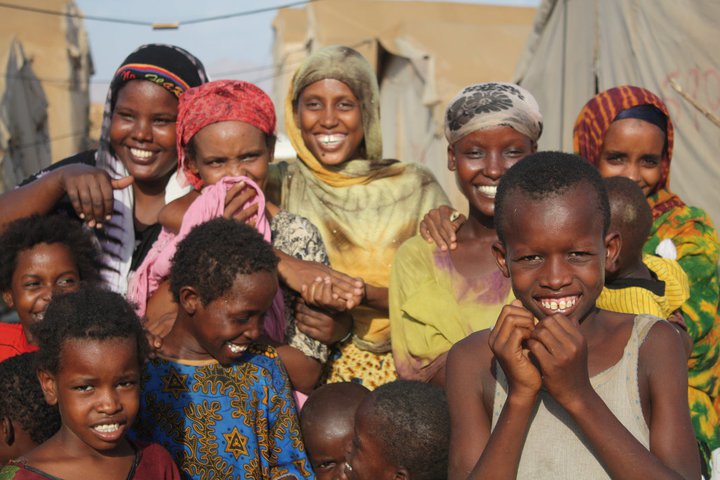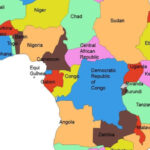By Executive Editor, The Daily Jubba.
Since yesterday the 12th August was the International Youth Day 2021, We have decided as The Daily Jubba team to reran an article we published back in April this year. We feel the story of the Somali youth is as relevant as it was then and therefore we have made slight additions. Please be mindful that this article was first published under the tittle: The Somali Millennial.
According to the oxford dictionary a Millennial is defined as someone reaching young adulthood in early 21st Century. Somalia’s population is estimated to be 15.8 million people, of those nearly 16 million citizens 70% are under 30 years. For context globally, such a high population of young people is only found in Iraq and Palestine! It is this statistic that qualifies Somalia to be called a millennial country.
Somalia, as has been the clique goes, having civil war, armed conflict, terrorism, and political, economic and social crises for the past three decades which makes it hard for any Somali millennial to have ever seen a stable, prosperous and united Somalia. This also goes for the many millions born and raised in the diaspora therefore making all the while the Somali millennial an estranged person in his own home and abroad. We cannot talk of any commonality in our entire lives like any young people belonging to a single nation worldwide; we have not studied under the same curriculum, participated in the same national examinations or any other social system common to young people in a state. The Somali millennial from Hargeisa although born in the same time does not have much commonality with the one in Kismayo!
The Somali person born in the last 3 decades is largely a distressed citizen, stateless or a second generation immigrant or worse a refugee, which is not something any other somali generation, went through to be honest. A teenager that went to a refugee camp is now a grandfather while his situation has more or less remained the same. When this is the situation at hand it is not enough to say that the Somali people have been failed time and again.
Our history as a nation cannot be complete without underlining the hard work done by 13 young men (12 of this 13 were all under the age of 30 with majority in their early twenties.) collectively known as The Somali Youth League in founding this great nation. We are told heroic tales about how they brought about our independence through great determination and a commitment to rid us and our nation of colonial powers despite their limited education acquired from colonial institutions and political activity in a time when a young person hardly made decisions in the wider Somali society .Yet today, with all the perks of living in the information age and its technological advancement never seen before the young Somali is excluded from political processes and decision-making.
While the youth have been extensively used in all the armed conflicts in Somalia over the years, not once were their safety and welfare considered. Amidst the chaos that ensued in the absence of law and order came poverty, displacement, and mass migration out of the country. The young generation like the women was the most vulnerable members of society.
The problem of extremist violence, which many Somalis rightly consider to be an imported ideology has wreaked havoc in our beautiful country in the better part of the last decade and destroyed every social fabric that we considered sacred. Almost all of the militants who partake in this kind of violent extremism are the young people who have brainwashed into believing they are fighting a justified holy war killing and displacing their fellow Muslim brethren. With the prevalence of illiteracy, unemployment and the complete restriction or the extremely difficult task of leaving the country in search of a better life who can wholly blame any young person drawn into this hardline ideology? What is the alternative? In some rural parts of the country Al-Shabaab have been and still control for more than a decade, for the child who grew up under them what outlook on life does he have? What about the one who joined the extremist group as a child soldier and is now a battle hardened unrepentant jihadi? These are some of the questions that will need answers when/if Al-Shabab is defeated militarily because the ideological trail they will leave behind will be deeply entrenched.
Another factor that alienates Somali youth further is the consociation of the negotiated pseudo-democracy in the form of 4.5 power sharing agreement adopted in the last two decades, in this peculiar system of governance a section of Somali youth grow up thinking they are less valuable than their colleagues as some clans make up the big 4 while the “others” are conjoined into not one but half a pillar. This has resulted in many young people from alienated clans who envision little or no prospects in life to join the terror group Al-Shabaab en mass. The vile extremists lure them by promising equality among their “brothers” in arms under a corrupted variation of the noble teachings of Islam, the values of equality, equity and egalitarianism–the most pious being the nearest to Almighty Allah. Values that was once intrinsic in us as a society that we unfortunately long turned away from.
The Somali away from home is not without challenges too, identity crisis and the lack of a sense of belonging in a distant land may force one to seek out companionship among bad company, this perhaps explains why a lot of Somali youth are drawn into a life of crime; petty and violent. When one lives among people he/she shares nothing except the environment they will try their hardest not to be the odd one out. This may lead to watering down of their culture; language and way of life thereby adopting whatever the majority of his/her host country live by. Such a scenario is highly evident in the west more than any other part of the world. Although the concept of ‘Dhaqan Celis’ (loosely translated as cultural revival that may involve being taken back home to Somalia or other parts of East Africa to learn Quran and the Somali language) may help one a little, it doesn’t always entail an eagerly looked forward to feeling.
In the recent years Somali youth have been at the forefront in discussing issues affecting them and the homeland at large. This can be evident in the numerous conferences, forums and book fairs held across many places in Somalia. These gatherings, although less frequent and spread out, helps inculcate in one the sense of responsibility and consciousness of the unique place of the Somali youth in their world. Somali youth meeting up with/among themselves and deliberating their affairs while at the same time expressing themselves in arts and literature raises the spectacle of the kind of future Somalia will look like!
With the advent of the internet the Somali youth are now more connected together than at any time in history, this has made interaction of Somalis both at home and abroad more common and faster. Take a look at any social media site and you will encounter loads of Somali youth; this facilitates young like-minded people a meeting point albeit a virtual one. Another huge factor made possible by the internet is the provision of a kind of one stop place for Somali arts, literature, culture and history. As the oral society with no strong archival resources we are, we should be thankful for the internet as a people.
Sporting activities have also played a major role in the Somali Youth’s awareness and a sense of belonging, this was most evident when Somalia won its first ever world cup qualifying match in 2019, followed by successive displays of good sportsmanship by the Somali National Team- Ocean Stars, a team which is the favorite of every Somali! Also seen in international events were Somali athletes who, although represented their adopted countries, were as Somali as any Somali can be.

There was never a hopeful moment for the Somali youth than today in the last 3 decades, Somali youth today almost all partake in a nationwide education system, join the Somali National Army to serve Somalia and help her regain her standing in the world, Somali youthful returnees infuse the country with much needed expertise and investments. With a consistent and increase in such trends, Somalia will recover from all her ills in a short while!
I implore all the Somali millennia’s wherever they may be to rise up, be counted and become the drivers of the future and this great nation we have inherited. I conclude this article with a Somali proverb; madax madoow ayuu maan ku haraay!
To feature your writings contact us at [email protected]




